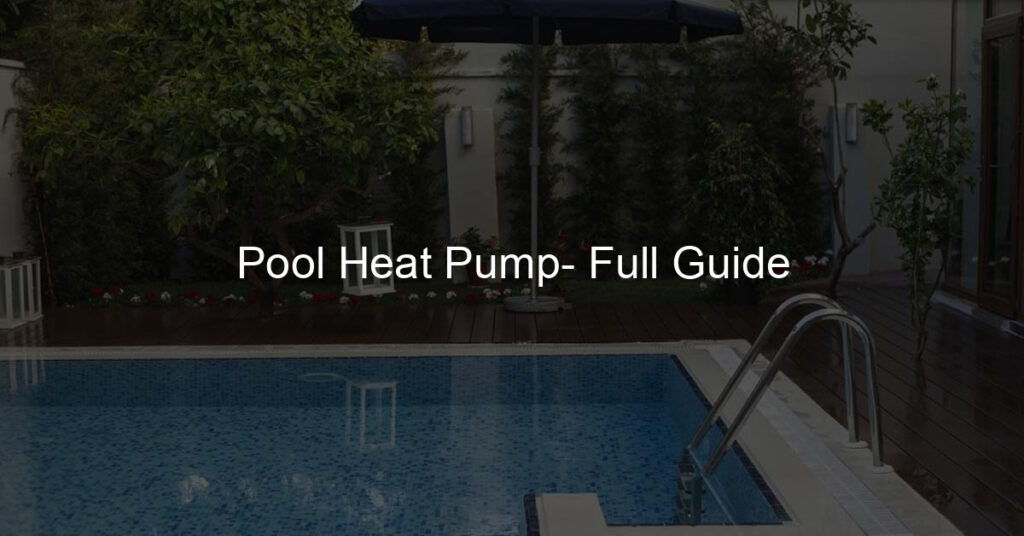Introductory Paragraph
Have you been considering a pool heat pump for your swimming pool, or simply want to understand how they work? You’ve come to the right place! This comprehensive guide will explore the A to Z of pool heat pumps. We’ll delve into their basic operations, discuss different types, guide you through the selection process, and also highlight the various pros and cons of this system.
Moreover, we will detail installation procedures, maintenance tips, and troubleshooting advice, providing insights from top brand reviews to maximizing energy savings. Lastly, we’ll tackle relevant concerns such as noise levels, environmental impact, and the effect on your home resale value. After reading, you’ll not only be more informed but also be equipped to make the best decision about pool heat pumps.
Understanding the Basics of Pool Heat Pumps
Pool heat pumps are a fantastic option for those looking to extend their swimming season. Operating on electricity, these devices extract heat from the air, intensify it, and then transfer the heat to your pool’s water. They are efficient and cost-effective, especially when compared to other heating options like gas heaters. They’re an investment that pays off by providing a consistently warm pool, regardless of the weather conditions.
Different Types of Pool Heat Pumps Available in the Market
There’s a wide variety of pool heat pumps available on the market today. The most common are air-source heat pumps, which extract heat from the ambient air. However, there are also water-source and geothermal heat pumps that extract heat from a water source or the ground, respectively. Each type has its unique set of benefits and limitations, which are typically determined by your climate, geographical location, and personal preferences.
Choosing the Right Size of Pool Heat Pump for Your Pool
When it comes to pool heat pumps, size matters. It’s crucial to select the right size to efficiently heat your pool and maintain the desired temperature. You have to consider factors such as the surface area of your pool, average air temperature, humidity levels, and desired pool temperature. Too small a pump may struggle to heat the pool, while an oversized pump could lead to unnecessary energy consumption and cost.
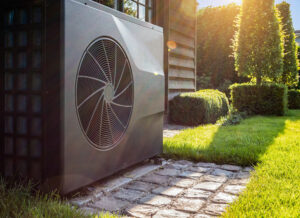
Efficiency and Performance: What Makes a Good Pool Heat Pump?
A good pool heat pump is defined by its efficiency and performance. The Coefficient of Performance (COP) is a standard measure of efficiency, representing the ratio of heat output to energy input. A higher COP indicates a more efficient unit. Additionally, consider the heat pump’s performance in varying temperatures. Some heat pumps perform well in warm climates but may struggle in cooler conditions. Thus, it’s essential to select a heat pump that matches your local climate and pool needs.
| Comparison Parameters | Type 1: Air Source Heat Pump | Type 2: Water Source Heat Pump | Type 3: Geothermal Heat Pump |
|---|---|---|---|
| Efficiency (COP) | High | Medium | Highest |
| Installation Cost | Low to Medium | Medium to High | High |
| Running Cost | Low | Medium | Low |
| Performance in Cold Climate | Medium | High | Highest |
Maintaining Your Pool Heat Pump for Optimal Performance
Maintaining your pool heat pump is pivotal to its optimal performance and lifespan. Regular tasks include cleaning the evaporator coil to prevent clogging, checking the water flow rate, inspecting for leaks, and ensuring the fan is functioning correctly. Regular professional services are also advisable for more in-depth checks, such as assessing refrigerant levels and compressor functionality.
Troubleshooting Common Problems with Pool Heat Pumps
Even with regular maintenance, pool heat pumps can encounter problems. Some common issues include low heating performance, unusual noises, and even complete shutdown. Causes can range from low refrigerant levels to faulty components. Being familiar with these issues and their potential fixes can save you from unnecessary downtime, or even costly repair bills.
Benefits of Using a Pool Heat Pump versus Other Heating Options
Pool heat pumps offer several benefits over other heating options like gas or electric resistance heaters. They are more energy-efficient, meaning lower operating costs in the long run. Also, they produce consistent heat, allowing for a comfortable swimming experience regardless of the weather. However, it’s essential to note that initial costs might be higher than other heating options, but this can be offset by lower running costs over time.
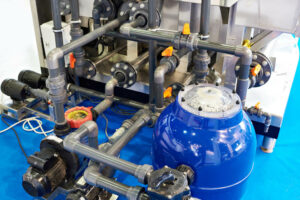
In-Depth Review: Top 5 Pool Heat Pump Brands of 2023
The market is awash with various pool heat pump brands, making the selection process daunting. Brands like Hayward, Pentair, and Rheem are known for their efficiency, reliability, and advanced features. Each brand offers a unique blend of advantages, so it’s important to conduct an in-depth review to understand which brand aligns best with your specific requirements and budget.
How to Maximize Energy Savings with Your Pool Heat Pump
To maximize energy savings, consider factors like the size of your pool heat pump, its efficiency, and how and when you use it. For instance, using a pool cover when the pool is not in use can reduce heat loss and therefore energy consumption. Furthermore, setting a lower temperature during colder months or when the pool is infrequently used can also help save energy.
The Role of Pool Heat Pumps in Extending Your Swimming Season
With a pool heat pump, you can swim comfortably beyond the traditional summer season. By maintaining your desired pool temperature, these devices allow you to extend your swimming season into the cooler months of spring and fall, and in some warmer climates, even throughout the winter.
The Environmental Impact of Pool Heat Pumps: A Comprehensive Analysis
Compared to other pool heating options, pool heat pumps have a lower environmental impact. They utilize renewable heat from the air or ground and consume less energy, making them a more eco-friendly choice. However, they still use electricity, so their environmental footprint depends on the source of your electricity. Using renewable energy sources can further minimize this impact.
How to Winterize Your Pool Heat Pump: Essential Tips
Winterizing your pool heat pump is an essential task in colder regions to prevent damage from freezing temperatures. Steps typically include turning off the power, draining all water from the system, cleaning and drying the components, and finally, covering the heat pump to protect it from harsh weather conditions.
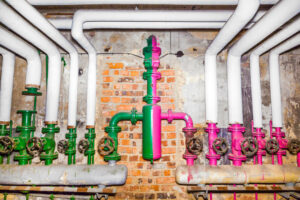
Cost Analysis: Investment and Running Cost of Pool Heat Pumps
Investing in a pool heat pump involves considering both the initial investment and running costs. While the initial cost might be higher than other pool heating options, the running costs are significantly lower due to their high energy efficiency. Over time, these savings can offset the initial investment, making heat pumps a cost-effective solution in the long run.
Latest Technological Advancements in Pool Heat Pumps
With technology constantly evolving, pool heat pumps are becoming more advanced and efficient. Innovations include smart controls for easy operation, variable-speed compressors for enhanced efficiency, and even solar hybrid models for more sustainable operation. These advancements aim to improve user experience, reduce energy consumption, and extend the lifespan of the heat pump.
Repair or Replace? Making the Right Decision for Your Pool Heat Pump
Knowing when to repair or replace your pool heat pump can save you time and money. Factors to consider include the age of the heat pump, frequency of repairs, energy bills, and overall performance. If your heat pump is older and requires frequent repairs, or if your energy bills are steadily rising, it might be time to consider replacement.
Using Solar-Powered Pool Heat Pumps: Pros and Cons
Solar-powered pool heat pumps are an increasingly popular option. They use solar energy to power the heat pump, reducing reliance on traditional electricity sources. This not only saves on energy costs but also reduces the environmental footprint. However, their efficiency is dependent on sunlight availability, which could be a limitation in certain climates or seasons.
Understanding the Noise Levels of Pool Heat Pumps
One often overlooked aspect of pool heat pumps is their noise levels. While most modern models are designed to operate quietly, some noise is inevitable. Noise levels can be influenced by factors like the model, age, and maintenance of the heat pump, as well as the proximity of the heat pump to your living areas. Therefore, it’s essential to consider noise levels when choosing a pool heat pump.
The Impact of Pool Heat Pumps on Home Resale Value
A pool heat pump can potentially enhance your home’s resale value. Many home buyers value the added comfort and extended swimming season that a heated pool offers. Plus, the energy efficiency of pool heat pumps is a selling point for environmentally-conscious buyers. However, the exact impact on resale value can vary based on factors like the age and condition of the heat pump, as well as market trends.
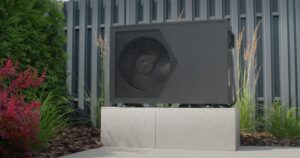
Case Study: How a Pool Heat Pump Transformed my Swimming Experience
Personal experiences can be a great source of information. In this case study, we’ll share the experience of a pool owner who installed a heat pump. We’ll cover their motivations, the selection process, installation, usage, maintenance, and overall impact on their swimming experience. This firsthand account will provide valuable insights for anyone considering a pool heat pump.
Conclusion
In this comprehensive guide, we’ve explored the ins and outs of pool heat pumps. From understanding their basic functionality, through the different types available, to guidance on sizing, efficiency, and performance, we’ve covered it all.
We’ve also touched upon installation, maintenance, troubleshooting, cost analysis, and even shared a personal case study. While pool heat pumps come with their own set of challenges, their benefits in terms of energy efficiency, extended swimming season, and potential home resale value can make them a worthwhile investment. Ultimately, the best decision will be informed by your specific needs, preferences, and local climate conditions.
Exploring Further: Additional Insights
Understanding Warranty Coverage for Pool Heat Pumps
Warranties are a crucial aspect of your pool heat pump investment. They offer peace of mind and protect you from potential manufacturing defects or premature failures. Understanding the terms and conditions of your warranty, including what’s covered and for how long, is vital before making your purchase.
The Role of a Professional in Installing and Maintaining Pool Heat Pumps
While some tasks can be handled independently, a professional’s role in installing and maintaining pool heat pumps should not be underestimated. Their experience and expertise can ensure correct installation, efficient operation, and prolong the lifespan of your heat pump.
What to Expect From a Pool Heat Pump in Different Climates
The effectiveness of pool heat pumps can vary across different climates. While they are a fantastic choice for moderate to warm climates, their efficiency can decrease in colder areas. Understanding what to expect in terms of performance and energy consumption in your specific climate can guide your decision-making process.
Navigating Regulations and Permits for Pool Heat Pump Installation
Depending on your location, installing a pool heat pump might require specific permits and must adhere to certain regulations. These can include safety standards, noise restrictions, and more. Being aware of these requirements can help you navigate the installation process smoothly and legally.

